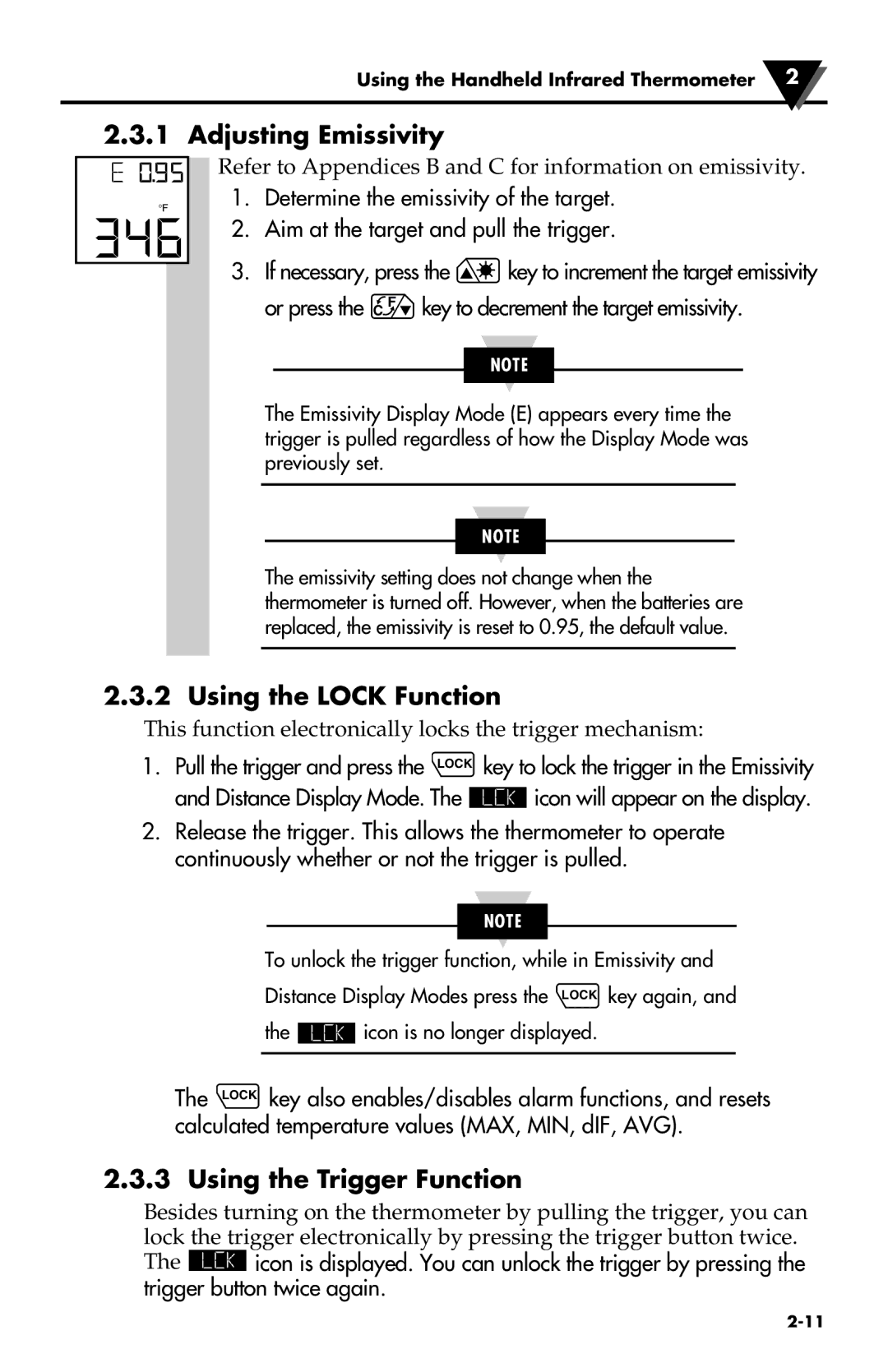
Using the Handheld Infrared Thermometer 2
2.3.1 Adjusting Emissivity
°F
Refer to Appendices B and C for information on emissivity.
1.Determine the emissivity of the target.
2.Aim at the target and pull the trigger.
3.If necessary, press the ![]() key to increment the target emissivity or press the C F
key to increment the target emissivity or press the C F ![]() key to decrement the target emissivity.
key to decrement the target emissivity.
NOTE
The Emissivity Display Mode (E) appears every time the trigger is pulled regardless of how the Display Mode was previously set.
NOTE
The emissivity setting does not change when the thermometer is turned off. However, when the batteries are replaced, the emissivity is reset to 0.95, the default value.
2.3.2 Using the LOCK Function
This function electronically locks the trigger mechanism:
1.Pull the trigger and press the LOCK key to lock the trigger in the Emissivity
and Distance Display Mode. The ![]() icon will appear on the display.
icon will appear on the display.
2.Release the trigger. This allows the thermometer to operate continuously whether or not the trigger is pulled.
NOTE
To unlock the trigger function, while in Emissivity and
Distance Display Modes press the LOCK key again, and
the ![]() icon is no longer displayed.
icon is no longer displayed.
The LOCK key also enables/disables alarm functions, and resets calculated temperature values (MAX, MIN, dIF, AVG).
2.3.3 Using the Trigger Function
Besides turning on the thermometer by pulling the trigger, you can lock the trigger electronically by pressing the trigger button twice.
The ![]() icon is displayed. You can unlock the trigger by pressing the trigger button twice again.
icon is displayed. You can unlock the trigger by pressing the trigger button twice again.
